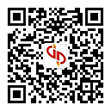You don't have to be a botany expert to decipher what it means when somebody sends you a rose.Every year on Feb.14,millions of people exchange the flower to express their love —and an estimated 250 million roses were produced for Valentine's Day in 2018,according to the Society of American Florists.
But the rose's life as a symbol didn't begin with romance.In Victorian England, women's roles in society were limited by custom and norms.Withinthose strictures,learning the language of flowers —the notion that each and every flower has its own meaning — was one activity deemed domestically appropriate for them.And for ladies in that situation, its communicative possibilities also held an appeal that other domestic arts lacked;“thepossibility that some women sought methods of covert communication andexpression exists,”Mary Brooks wrote in Silent Needles,Speaking Flowers.
The early popularization of this practice is credited to Lady Mary Wortley Montagu,the wife of a British ambassador to Turkey in the 18th century.Enthralled by a Turkish version of flower language,Lady Montagu wrotea series of letters home to England in 1716.She described the Turkish tradition as a way of assigning meaning to objects in order to send secret love letters.Montagu's letters,published in 1763,wrote of her perceptions ofthis practice:“There is no color,no flower,no weed,no fruit,or herb that hasnot a verse belonging to it:and you may quarrel,criticize,or send letters of passion,friendship,or courtesy,or even of news,without ever inking your fingers,"she wrote.But the Lady was actually incorrect in her interpretation. In spite of Montagu's misunderstanding,word of the concept spread.Langage desFleurs, a dictionary for the language of flowers by Charlotte de Latour,waspublished in France in 1819,a century after Montagu's
discovery.Nine editionsof the English translation of the book,which alphabetically defined eachflower,were printed within three decades of its publication.De Latour'stranslated Language of Flowers covered most popular flowers we buy,sell andgive today,from the mistletoe's importance during Christmas to the musk rose'ssymbolization of “capricious beauty”.
In de Latour's chapter on the rose,the flower is not only defined as meaning“love”,but the plant itself is romanticized.“Who that ever could sing has not sung the Rose!The poets have not exaggerated its beauty,or completed it spanegyric,"she wrote.Nature seems to have exhausted all her skill in the freshness,the beauty of form,the fragrance,the delicate color,and the gracefulness which she has bestowed upon the Rose.
[单选题]
A. make a decision
B.represent a message in code
C.conduct an action
D.discover the meaning of something
[单选题]
A. an appropriate activity for women in Victorian England
B.a way to express their romantic ideas explicitly
C.a symbol of romantic lifestyle
D.a kind of domestic art form
[单选题]
A. She was the British ambassadress to Turkey in 1716.
B.She had a clear and correct understanding of flower language.
C.She wrote a book about the language of flowers in the 18th century.
D.She thought almost all feelings could be conveyed without a word.
[单选题]
A. The beauty of rose is usually exaggerated by poets and singers.
B.Roses are the essential decorations during the Christmas season.
C.Rose is finally romanticized in de Latour's dictionary of flower language.
D.Nowadays,it's very common for us to buy and give roses to our friends.
[单选题]
A. Flower and Its History
B.Rose and Its Language
C.The Culture of Flowers
D.The Portrait of Roses

 原创试题专区
原创试题专区 开通学校服务
开通学校服务





